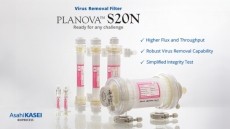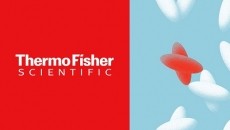Plant-based vaccines poised to challenge $4bn seasonal flu shot market

The vaccine - currently being tested in phase III trials by Mitsubishi Tanabe - has clear advantages over not only vaccines produced via the traditional route in eggs but also newer vaccines produced in cell culture, according to GlobalData's Achilleas Livieratos.
Mitsubishi Tanabe's candidate is one of a number of flu vaccines in development based on the expression of virus-like particles (VLPs) - self-assembled units that are closer in structure to the wild-type virus than subunit-based vaccines made in eggs. Clinical trials suggest they may be able to provide greater and longer-lasting protective immunity.
By incorporating influenza genetic material into tobacco leaves new vaccines can be made in as little as four weeks - six times faster than egg-based methods - which means producers can match circulating flu strains more closely. They can also react quickly if a new strain of the virus starts to emerge.
"As well as taking six months to work, during which time minor genetic mutations can decrease vaccine efficacy, individuals with egg allergies cannot safely receive vaccines, leaving them vulnerable to infection," notes Livieratos.
He predicts that Mitsubishi Tanabe's candidate, which was originally developed by Medicago, "could potentially rival traditional egg-based vaccines by the 2018-19 flu season," mounting an assault on a market currently dominated by egg-based vaccine products from Sanofi, GlaxoSmithKline and MedImmune/AstraZeneca.
The flu vaccine market is currently valued in the region of $4bn a year and is already undergoing significant change, as the big producers are starting to shift away from traditional egg-based vaccines towards other production technologies such as cell culture, as well as alternative routes of administration such as intranasal delivery.
Flu vaccines made in mammalian and insect cells have already started to roll out in Europe and the US. Novartis' vaccine Flucelvax is already on sale in both regions, while Protein Sciences' insect cell-based FluBlok is available in the US. Meanwhile, Baxter has two cell-based vaccines - Preflucel and Celvapan - on the market in the EU.
None of these vaccines are based on VLPs, although it should be noted that the relative merits of VLP and conventional vaccines remain open for discussion.
Meanwhile, important differences exist between plant-based and conventional cell culture-based production methods, according to Livieratos, as plant-based manufacturing offers reduced infrastructure costs and can slash production times in half.
Another VLP vaccine - made in insect cells - is in phase III development at Novavax and a little ahead of Mitsubishi Tanabe's candidate, according to GlobalData, although it maintains that rapid production in plants could give Mitsubishi Tanabe a competitive edge.
Nevertheless, "Mitsubishi Tanabe will need to demonstrate strong safety data and yearly production consistency of its tobacco-based vaccine," says Livieratos.
"If the company’s product, or one like it, is approved, GlobalData expects a novel vaccine that boasts a rapid, plant-based manufacturing process to have a significant impact on the seasonal influenza vaccine landscape."


















